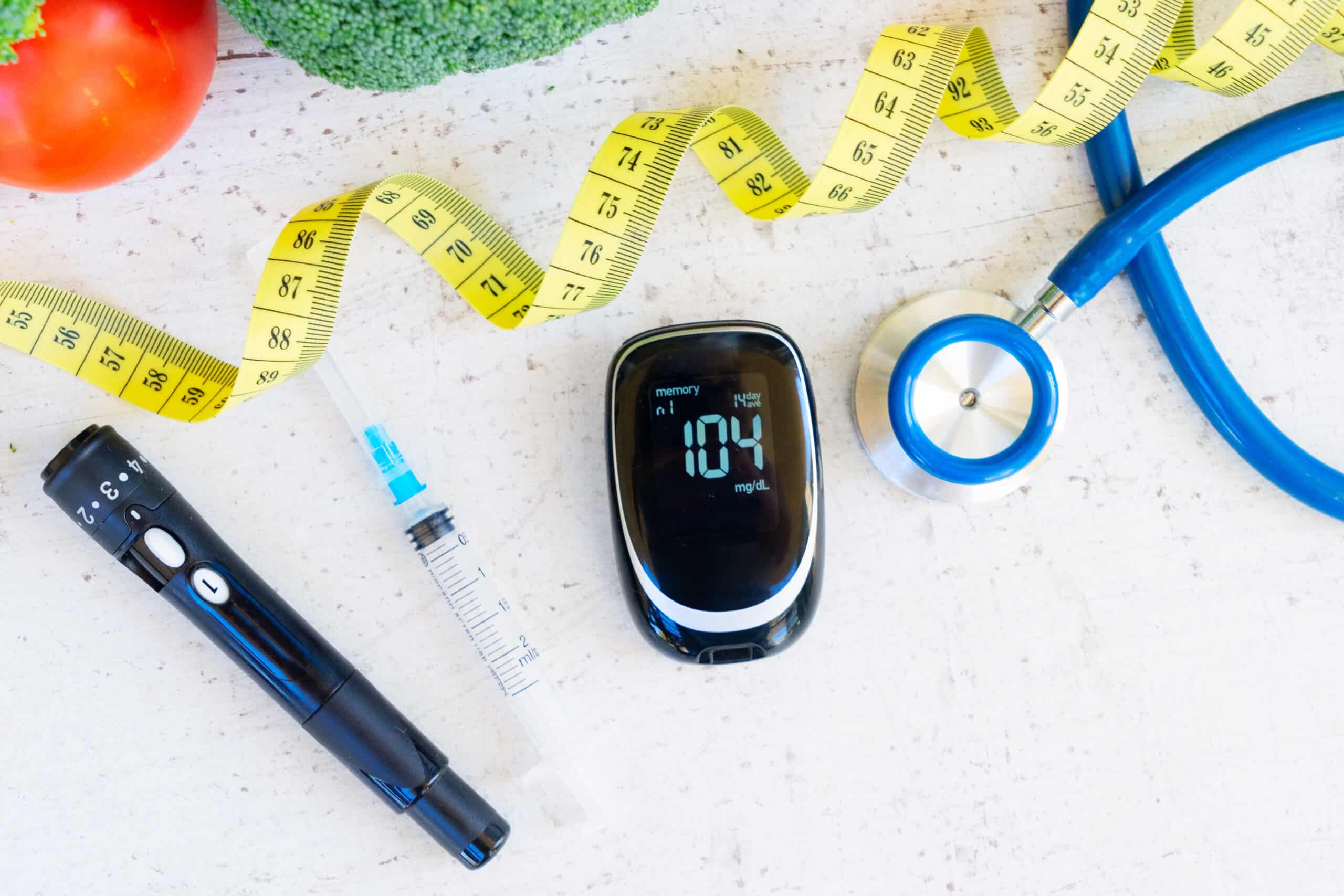


Weight loss is often recommended as a step in diabetes management. While losing tens of kilos may seem challenging to you, the benefits are worth the effort.
Losing weight should ideally come up with losing body fat – it is by achieving the latter that you improve your diabetes and overall health. For diabetics, weight loss injections can be prescribed to accelerate the process.
In this article, we will explore how weight loss impacts diabetes, what lifestyle changes you should make to see improvements, and how weight loss injections exactly work.
Obesity is highly associated with the onset of type 2 diabetes. Being obese makes your body less receptive to insulin, which helps regulate blood sugar levels. This condition is called insulin resistance.
Excess fat, particularly around your abdomen, contributes to insulin resistance. This fat produces free fatty acids that disrupt insulin’s natural activity.
If you have chronic inflammation, which is commonly associated with obesity, your insulin response can also be impaired. With reduced insulin sensitivity, you increase your chances of acquiring type 2 diabetes.
Weight loss can improve your insulin sensitivity. Here’s how it happens:
Weight loss improves chronic inflammation in several ways.
With better insulin sensitivity and blood sugar control from weight loss, you may be able to lessen your reliance on diabetes medications. Under your doctor’s supervision, your doses may be lowered or even discontinued for certain drugs.
Cardiovascular disease is a common diabetes complication and more so for obese individuals. However, losing weight can eliminate risk factors such as high blood pressure and cholesterol levels.
When managing obesity and diabetes, making positive lifestyle changes is vital.
A healthy diet is crucial in weight loss and keeping your blood sugar levels under control. When dropping weight, don’t focus on eliminating calories mindlessly – make smart food choices that resolve around:
Including exercise in your weight loss or diabetes management plan may be daunting, especially if you are living a sedentary life. However, the pros can outweigh the challenges of exercising.
In a systematic review, the average risk reduction for diabetes was 42% when comparing the most physically active participants to the least active participants. Below, we explain why regular exercise is so essential to fighting diabetes.
Exercise helps your body utilise energy more efficiently by increasing insulin sensitivity. When you exercise, your muscles require glucose uptake, and this increased demand for glucose reduces the need for large amounts of insulin to be released.
Regularly doing aerobic exercises (such as brisk walking, jogging, or cycling) and resistance training (such as weightlifting) effectively improve insulin sensitivity. These types of activities can promote muscle strength and increase glucose uptake.
Regular exercise contributes to your energy expenditure. It helps you burn more calories and promote fat loss while preserving muscle mass, helping you reach your weight loss goals and improving your health.
Exercise strengthens your heart, improves circulation, and lowers blood pressure and cholesterol levels. It is a way to reduce the risk of cardiovascular complications associated with diabetes.
Managing stress is crucial for individuals with diabetes, as stress hormones can raise blood sugar levels. Engaging in physical activity helps combat stress and promotes overall well-being.
The recommended frequency of exercise is 150 minutes of moderate intensity aerobic exercise per week. That is 30 minutes per day, 5 days a week, excluding warm up and cool down. If you are starting out from a previously sedentary lifestyle, do consult your doctor on the appropriate intensity levels that you should begin with.
In addition to dietary changes and physical activity, adopting healthier habits can further support your weight loss and diabetes management efforts:
Strive for quality sleep of 7-9 hours per night. Poor sleep can affect hunger hormones and insulin sensitivity.
Find effective ways to manage stress, such as practising deep breathing exercises, yoga, or engaging in hobbies and activities you enjoy.
Drink plenty of water throughout the day and limit sugary beverages. Hydration is essential to help manage your cravings and overall health.
If you smoke, consider quitting, as smoking can worsen diabetes complications. If you consume alcohol, do so in moderation and be mindful of its impact on blood sugar levels.
Weight loss may not be easy. While many have been successful in losing weight and controlling diabetes with the right strategies, others have had disappointing results.
For such cases, doctors can recommend weight loss injections to facilitate your weight loss efforts. These injections can help you lose weight while also improving blood sugar control, reducing your dependency on diabetes medications, and decreasing your risk of diabetes-related complications.
To qualify for these injections, your doctor will check for a few things:
Ozempic is a HSA-approved injection to treat both Type 2 diabetes and obesity. It is a brand name for the medication semaglutide, which belongs to a class of medications called glucagon-like peptide-1 receptor agonists (GLP-1 RAs).
Semaglutide mimics the functions of glucagon-like peptide-1 (GLP-1), a naturally occurring hormone in your intestines. The hormone aids the body in signalling to your brain that it is full, prompting the body to slow down digestion. Using Ozempic will help you feel full for longer, control your appetite and help you lose weight.
Ozempic also controls blood sugar by lowering fasting and post-meal blood sugar levels. It enhances insulin secretion and reduces glucagon production, slowing down the glucose absorption rate in the bloodstream. Semaglutide reduces the risk of cardiovascular problems in patients with Type 2 diabetes.
Ozempic injection is administered weekly and should be prescribed and monitored by your doctor. They will determine the correct dosage and assess its effects on your blood sugar level and potential weight loss. Semaglutide is generally safe and well-tolerated.
Saxenda is a brand name for liraglutide, another GLP-1 receptor agonist medication approved in Singapore.
Saxenda injection works similarly to Ozempic, helping with weight loss by reducing hunger, increasing feelings of fullness, and slowing down digestion. Activating GLP-1 receptors in the brain can help control food intake, leading to reduced calorie consumption and weight loss.
Saxenda also functions like Ozempic to treat diabetes, improving blood sugar control by enhancing insulin secretion and reducing glucagon production. Using Saxenda can, therefore, result in improved glycemic control and potentially a reduction in the need for diabetes medications.
Saxenda injection is administered daily and is generally safe when used in conjunction with a healthy diet and exercise.
Wegovy is a glucagon-like peptide-1 receptor agonist (GLP-1 RAs), similar to Ozempic. Wegovy is approved for use but out of stock.
Just like Ozempic, Wegovy signals to your brain that it is full, prompting your body to slow down digestion. You will feel full longer, allowing you to manage your weight and, in turn, manage your diabetes.
Watch our website and social media for updates on Wegovy approval in Singapore.
Even though there are two types of weight loss injections available in Singapore, only your doctor can determine which is best for you.
Your doctor will assess your condition to decide whether or not you are a good candidate for one.
SL Aesthetic Clinic offers Saxenda injections as part of our weight loss programs in Singapore. We are dedicated to supporting individuals who want to regain their ideal body weight and health.
Our team of experienced doctors provide:
To find out more about weight loss injections and their prices, consult us today.
Like what you read? Share them!